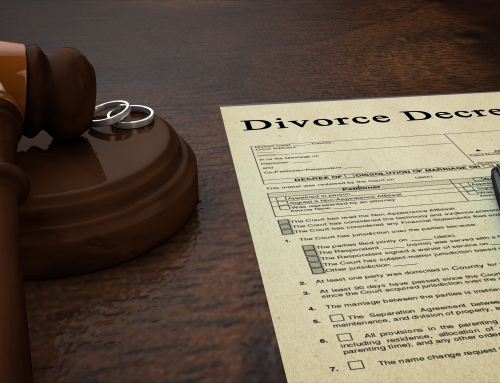Okay, so now you’ve got some tools at your disposal – public records, internet searches, maybe a credit report (if you read part 1) – now what do you do with that info? Remember, litigation prevention is the #1 priority here, but also one must always remember: You can never know for sure what anyone will do, and it is not within your human power to stop anyone from doing anything they really want to do.
This means that you are looking for two things when evaluating someone you are about to do business with:
1. Presence or absence of certain factors or flags, which would prevent you from doing business with the person in the first place
2. Presence or absence of assets or collateral to go after, if worst comes to worst and you need to enforce a judgment against this person or company.
Red Flags
Some of these may be obvious to some, others not so obvious- there are many more than are listed here but a partial list is as follows:
1. Lots of lawsuits, whether plaintiff or defendant
Whether they sue often or get sued often, neither is a very good sign. The County Courthouse will tell you this, and you may even be able to get access to documents online to describe details. You may also see things like restraining orders, misdemeanors etc. All very nice things to know, if you are contemplating business with someone.
2. Recorded liens/tax debt
Whether you access the County Recorder’s records online, in person, or through and investigator, the records will show you if the person has judgment liens or tax liens against them. Needless to say, the more liens someone has against them, the more used to not paying their debts and evading their creditors, they have become. Also, lots of liens means lots of debt, which means that bankruptcy then becomes a much greater possibility – and if the person you are doing business with goes bankrupt, most of the time, your debt will disappear. (see article on creditors rights in bankruptcy for further discussion
3. Resides out of State, uses business entities from other states, has too many business entities.
A slightly less obvious red flag but still something that should be considered seriously -a person who resides in a state other than the one you are doing business with them in, or worse, a person who is in your state but is doing business through an entity in another state (most often, Nevada, Wyoming, Delaware) is almost always doing this to protect themselves against creditors.
Now mind you, this doesn’t mean they are a bad person, but what it does mean is that they have actively planned for the possibility that they could incur a debt and not want to pay it, and actually put a mechanism in place whereby they can evade their creditors. If you do business with an out of state business entity and things don’t work out in the end, you may have an extremely hard time collecting from them.
The same is true of an individual who appears to have what seems like “just too many” business entities that he/she owns (especially if many of those entities are suspended/cancelled on the Secretary of State’s corporation search site). Also beware of a business entity, which is owned by an individual that has tons of other entities, especially when they are defunct entities.This could mean that the entity you are looking to do business with, or the individual behind it, plays “shell games” with the various entities- (A typical example of this- someone who uses one entity to receive the money from a business and hold the assets, but uses a DIFFERENT entity to sign the business contracts or to cut employee paychecks or otherwise do the things that incur liability – that way when the lawsuit comes against the company that appears to be doing the business, the assets and income of the company that is really doing the business are safe)
To find business entities related to an individual or other entities, you can look on corporationwiki, bizapedia, or you can contact an investigator to sort through it for you.
4. Does not appear to have sufficient assets or credit in their name, in relation to the business being done. A persons lifestyle and financial situation should match up to the claims they are making about themselves.
Asset searches should usually be done through an investigator, but a county recorder search will also tell you if a person or entity owns real estate in the county. A title company rep can do this for you as well. **NOTE** It’s my recommendation that if you are going into any sort of large transaction, you get a decent private investigator to research the individual or company.
Basically though, if a person is promising you the world, and is claiming huge successes and returns on investments or making other such seemingly too-good-to-be-true promises, that person should own a house, or own some business entities that have some assets/holdings. If a person is claiming to be real estate investor, the public records will reflect details of previous purchases and sales over the years. Investigation reports show details of neighborhoods people live in as well, and someone claiming huge successes should probably reside in a decent neighborhood with a median income (available from investigative report) and home-price level that is consistent with the success they are claiming.
If a person does not appear to have significant assets but is engaging in a significant transaction, that is a clear and obvious problem, and if someone is making claims of wild success but is not appearing to have the assets or living situation of such a successful person, then they are either exaggerating their success, or intentionally hiding assets to appear less successful than they are- both of which are red flags, that should perhaps cause one to think twice about what they are telling you, and about dealing with them. Of course, they could also just like to live humbly and save money.
In the end, doing business with someone or not is a function many different factors, and nothing is certain, every rule has exceptions, and every situation and person is its own. So you will need to decide for yourself at the end of the day, if all the factors weigh for or against.
However you may weigh the information and factors in any one situation is up to you and you will become better at it with experience. The point is though, in order to be able to weigh the factors and make the informed decision, you need information, and you need to know where to look for it.
It’s not that hard to get, and investigators are not that expensive if you don’t have access to the info, or don’t want to do the footwork. The one thing you don’t want to to do business “in the blind.”
Like poker and life in general, business is a game of insufficient information, where if you knew all information, you would always get the outcome you want. Of course you’;; never know everything, but you need to know as much as you can to maximize your best outcomes.
And if you do not believe that, then most likely you will be calling me up at some point, when you try to chase down your deadbeat. Don’t make that mistake- a couple hundred dollars up front and a couple hours of time can save you a couple hundred thousand in the end.









Recent Comments